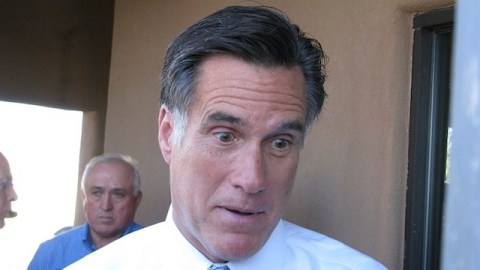Candidates Are Who They Say They Are

As a former pro-life governor of liberal Massachusetts, whose signature achievement was the health care plan that served as a model for Obamacare, Mitt Romney has to work hard to convince conservative Republicans that he is really one of them. His support among Republicans has hovered around just 25%, as conservatives have rallied around a succession of more conservative alternatives—first Michele Bachmann, then Rick Perry, then Herman Cain, then Newt Gingrich, and now Rick Santorum. Conservatives fear (and liberals hope) that if Romney were to win the presidency he would revert to his old moderate views.
That’s not likely. My guess is that Romney is not in fact by conviction the social conservative he currently says he is. That’s certainly what the Romney campaign will tell moderate swing voters if he gets to the general election, anyway. But a president’s personal convictions matter less than you might think.
The truth is that when we vote for president we’re not simply voting for one particular person. We’re voting for the whole coalition of groups that support that person. We’re voting for a party. While we tend to remember a politician’s broken campaign promises, as Jonathan Bernstein says, political scientists have found that politicians generally do try to keep the promises they make on the campaign trail. In large part that’s because they continue to rely on the people who voted for them for support after they’re elected. And in the president’s case those same supporters are the ones who end up staffing the executive branch.
As George Packer puts it, “how a candidate runs shapes how a President governs.” Romney, as Packer says, won’t be able to simply flip a switch when the campaign is over “and return to being a cautious centrist whose most reassuring quality is his lack of principles” because the Republican Party simply won’t let him. That’s why, as Bernstein says, “if you want to know what Mitt Romney or the rest of the Republican crowd would do in 2013 if elected, the best way to find out is to listen to what they are saying right now.”
Photo credit: Matthew Reichbach





